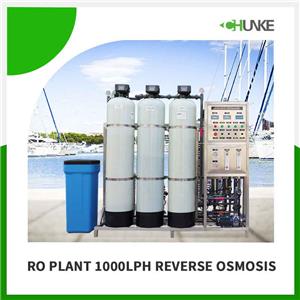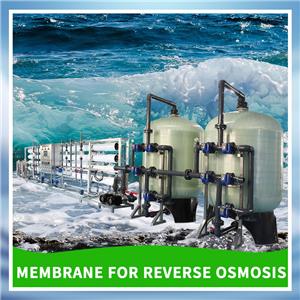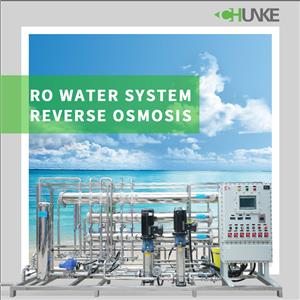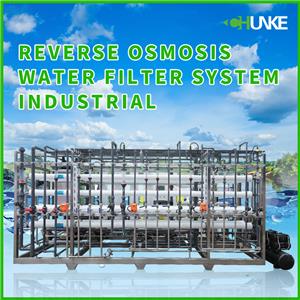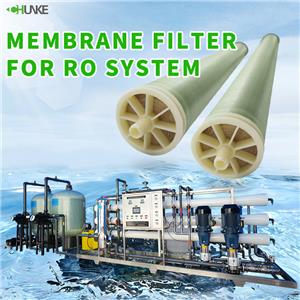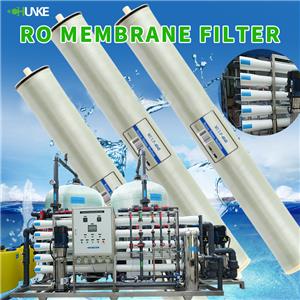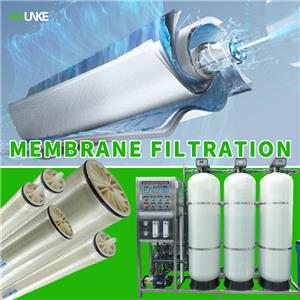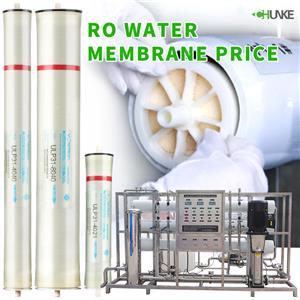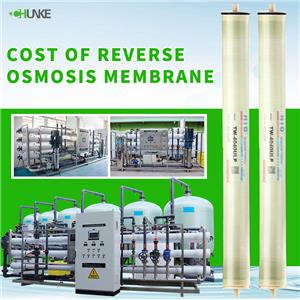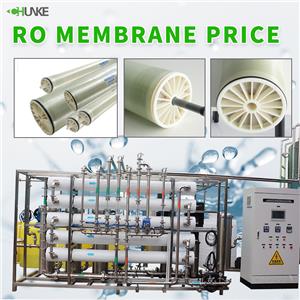-
03-22 2024
What is the processing capacity of 1000 LPH reverse osmosis plant?
A 1000 LPH reverse osmosis plant can purify 1000 liters of water per hour. This means that under continuous operation, the device can process 1,000 liters of water, remove impurities and dissolved substances in the water, and produce pure water that meets standards.
-
03-19 2024
How often should reverse osmosis membrane be replaced?
The average replacement cycle of RO membrane is 3-5 years. However, if the RO membrane is still able to produce high-quality water, you can extend its life beyond five years. Therefore, the frequency of membrane replacement depends on its operating conditions and water quality requirements.
-
03-16 2024
What is a reverse osmosis system? How does a reverse osmosis system work?
A reverse osmosis system (RO system) is a multi-stage water treatment process that uses a semi-permeable membrane and pressure to remove contaminants from the water, producing clean drinking water.
-
03-16 2024
How long is the service life of an industrial reverse osmosis filter?
Industrial reverse osmosis filters are an important part of water treatment systems, and their service life is generally 2 to 5 years. Pre-filters, carbon filters, and reverse osmosis membranes are common filters found in industrial reverse osmosis systems and have varying service lives.
-
01-19 2024
What are the differences between ro system membrane filters and other filters?
The uniqueness of membrane filters in reverse osmosis systems lies in their micro pore accuracy, reverse osmosis principle, efficient desalination, water conservation and environmental protection, anti pollution, multi field applications, and technological innovation. Its high-precision micropores, reverse osmosis process, professional desalination, sustainable water conservation, and excellent pollution resistance are widely used in multiple fields.
-
01-19 2024
What are the application areas of reverse osmosis membrane filters?
Reverse osmosis membrane filters are widely used for drinking water purification, industrial wastewater treatment, medical water, seawater desalination, food and beverage, agricultural irrigation, and urban sewage treatment. The microporous structure effectively blocks harmful substances and ensures water quality safety.
-
01-18 2024
What is the working principle of reverse osmosis membrane filtration?
Reverse osmosis membrane filtration technology is an efficient way to solve the problem of freshwater resource shortage by selectively separating solutes and solvents through semi permeable membranes. This technology includes microstructure, working steps, and advantages. By pushing seawater through the membrane under high pressure, it intercepts large molecules such as salt and produces high-purity fresh water.
-
01-17 2024
What is the price of high TDS reverse osmosis water membranes?
The article explores the key role of high TDS reverse osmosis water membranes in desalination systems, and their price fluctuations are influenced by multiple factors such as increased global demand for freshwater, technological innovation, raw material costs, production process optimization, market competition, and policy regulations.
-
01-17 2024
What is the cost of replacing the ro membrane in industrial seawater desalination systems?
The aging of reverse osmosis membranes has become a factor affecting the performance of industrial seawater desalination systems. This article explores the cost of replacing reverse osmosis membranes, which is influenced by factors such as specifications, brand, performance, service fees, and shutdown costs. Market research shows that costs fluctuate greatly, typically ranging from thousands to tens of thousands of yuan.
-
01-16 2024
What is the price of reverse osmosis membranes for household water treatment systems?
The article introduces the price and selection points of reverse osmosis membranes for household water treatment systems. The price of reverse osmosis membranes fluctuates due to multiple factors such as brand, specifications, performance, origin, and market conditions. Consumers are advised to make rational purchases based on their household water needs, brand reputation, water quality, and after-sales service.





